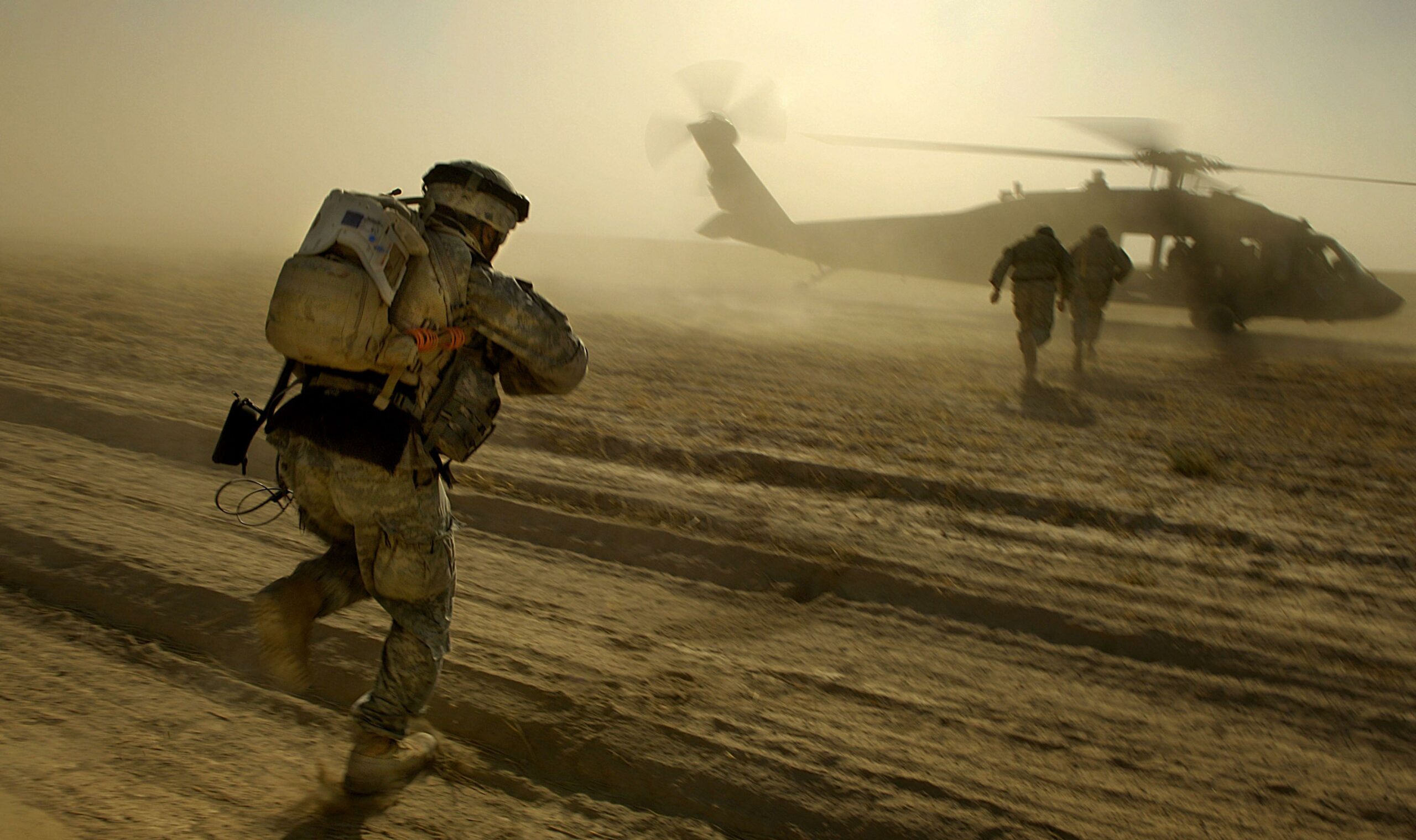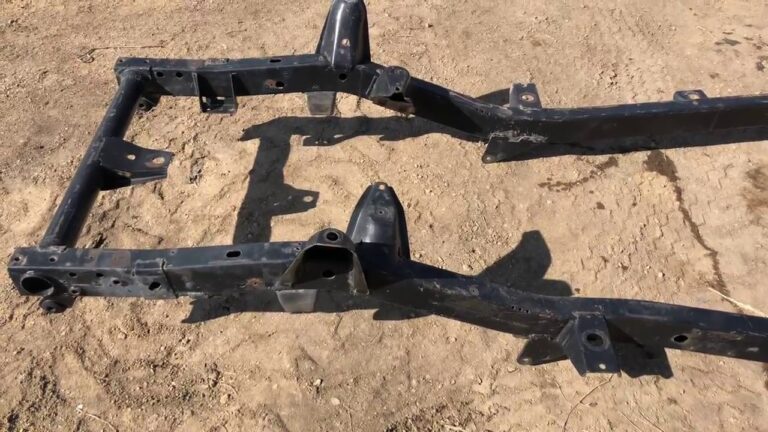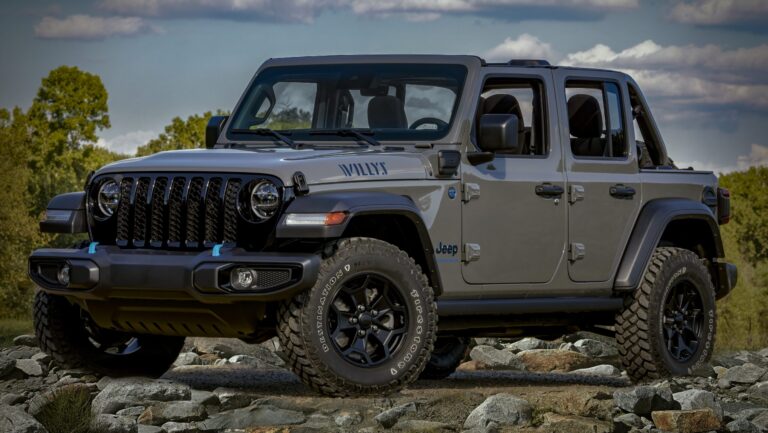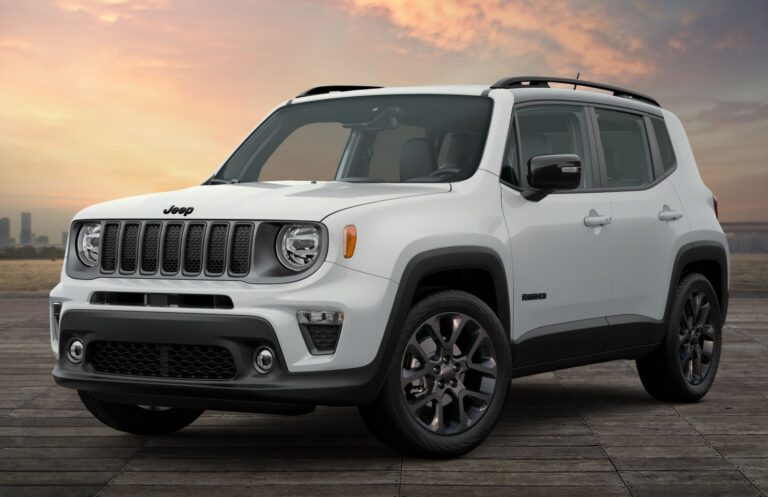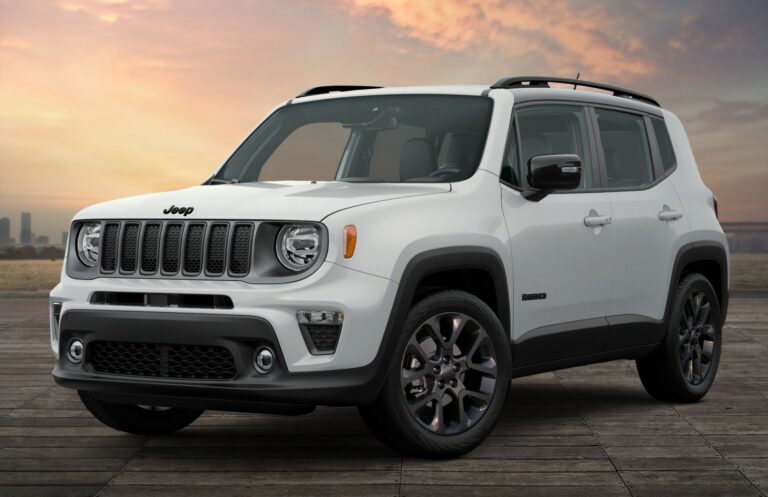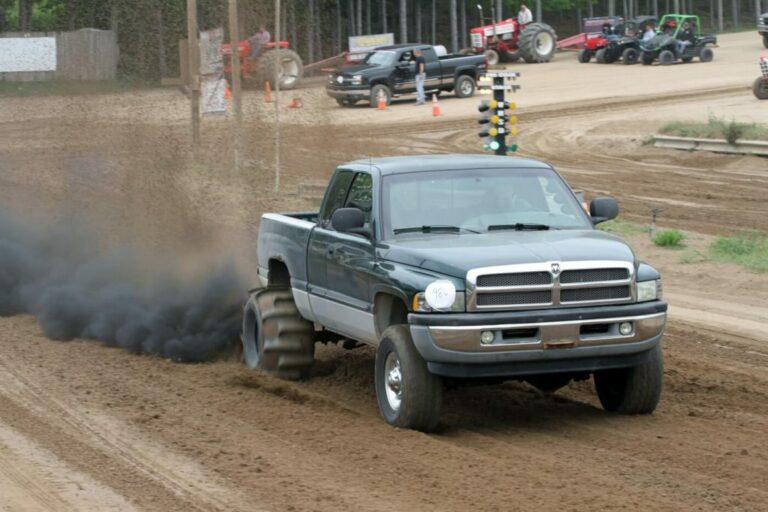Military Jeep For Sale Classifieds: Your Comprehensive Guide to Owning a Piece of History
Military Jeep For Sale Classifieds: Your Comprehensive Guide to Owning a Piece of History jeeps.truckstrend.com
The roar of an engine, the rugged silhouette against a dusty horizon, the unmistakable scent of history – for many enthusiasts, owning a military jeep is more than just acquiring a vehicle; it’s embracing a tangible piece of the past. Military Jeep For Sale Classifieds are the gateway to this unique world, offering a diverse array of iconic workhorses that once served on battlefields and in support roles across the globe. From the legendary Willys MB of World War II fame to the more modern M151 MUTT, these classifieds represent a vibrant marketplace where collectors, restorers, and history buffs converge to find their next automotive adventure.
This comprehensive guide will navigate the intricate landscape of Military Jeep For Sale Classifieds, offering insights into what makes these vehicles so special, where to find them, what to look for, and how to successfully bring one home. Whether you’re a seasoned collector or a curious newcomer, understanding the nuances of this specialized market is key to a rewarding purchase.
Military Jeep For Sale Classifieds: Your Comprehensive Guide to Owning a Piece of History
The Enduring Appeal of Military Jeeps
The allure of military jeeps transcends mere transportation. These vehicles are symbols of resilience, innovation, and pivotal moments in human history. Their design was born out of necessity, leading to an unparalleled reputation for durability, simplicity, and off-road capability.
The most iconic of these is undoubtedly the Willys MB (and its Ford counterpart, the GPW), which became synonymous with Allied efforts in World War II. Its compact size, four-wheel drive, and robust construction made it the ultimate utility vehicle, earning it the moniker "the vehicle that won the war." Following WWII, models like the Willys M38 and M38A1 continued the legacy through the Korean War, offering improvements like 24-volt electrical systems and slightly larger bodies. The Ford M151 MUTT (Military Utility Tactical Truck) then took the reins, serving from the Vietnam era well into the late 20th century, distinguished by its unibody construction and independent suspension.
Beyond their historical significance, military jeeps offer a unique driving experience. They are mechanical beasts, often requiring a hands-on approach to maintenance and operation. This raw, unfiltered connection to the machine appeals to those who appreciate mechanical simplicity and the satisfaction of keeping a piece of history alive. For many, a military jeep is not just a collector’s item but a functional vehicle for parades, off-road adventures, or simply a head-turning daily driver (where legal).
Navigating the Military Jeep For Sale Classifieds Landscape
Finding your ideal military jeep requires knowing where to look. The market for these specialized vehicles isn’t as broad as that for conventional cars, but it is well-established within dedicated communities. Military Jeep For Sale Classifieds can be found in several key locations:
- Online Marketplaces: Websites like eBay Motors, Hemmings, and ClassicCars.com often feature military jeeps. While broad, they can be good starting points. Specialized sites like G503.com (a renowned forum for military vehicle enthusiasts) and SteelSoldiers.com offer classifieds tailored specifically to military vehicles, providing access to a more knowledgeable and passionate seller base.
- Specialized Military Vehicle Dealers: A growing number of dealerships focus exclusively on vintage military vehicles. These dealers often have restored vehicles, offer warranties, and can provide expertise on provenance and parts. They typically list their inventory on their own websites.
- Auction Houses: Government surplus auctions (e.g., GovPlanet), estate auctions, and specialized classic car auctions can be excellent places to find military jeeps, often at varying conditions and price points. Be prepared for "as-is" sales and the need for immediate pickup.
- Military Vehicle Clubs and Associations: Joining local or national military vehicle preservation groups is invaluable. Members often buy, sell, and trade amongst themselves. These networks offer a wealth of knowledge and trustworthy leads that won’t appear in public classifieds.
- Word-of-Mouth: Sometimes, the best finds come from unexpected sources. Let friends, mechanics, and fellow enthusiasts know you’re looking.

When browsing Military Jeep For Sale Classifieds, pay close attention to the seller. Private sellers may offer lower prices but come with less vetting. Dealers might be more expensive but often provide more detailed information and potentially some level of support. Auctions are high-risk, high-reward.
Types of Military Jeeps You’ll Find (and What to Look For)
Understanding the different models and their nuances is crucial before diving into Military Jeep For Sale Classifieds. Each model has its unique characteristics, challenges, and value propositions.
- Willys MB / Ford GPW (WWII Era, 1941-1945): These are the holy grail for many collectors. They are nearly identical, built to the same government specifications.
- What to Look For: Originality (engine, chassis, body markings), rust (especially in the "hat channels" under the floor), proper data plates, and the correct features for the specific production year. Matching numbers are a huge plus but often rare. Authenticity commands premium prices.
- Willys M38 / M38A1 (Korean War Era, 1950s): The M38 was an updated MB, while the M38A1 introduced a rounder, larger body and a new F-head engine. Both featured a 24-volt electrical system for radio and equipment power.
- What to Look For: Condition of the 24V system, rust, and the specific parts unique to these models (e.g., waterproof ignition, larger fuel tank on M38A1).
- Ford M151 MUTT (Vietnam Era, 1959-1982): A significant departure from its predecessors, the MUTT features a unibody construction, independent suspension, and a larger, more powerful engine.
- What to Look For: Rust (unibody makes structural rust more critical), condition of the independent suspension components, and most importantly, legality for road use. Due to initial rear suspension designs that could lead to rollovers if improperly handled (fixed in later A2 models), many M151s were demilitarized (cut into sections) or sold for off-road use only. Check your state’s laws regarding titling and registration for on-road use. A clean, legal title is paramount.
- "Civilianized" Military Jeeps: Sometimes, you’ll find CJ (Civilian Jeep) models that have been painted olive drab and fitted with military accessories. While fun, these are not authentic military vehicles and should be priced accordingly. Always verify the VIN and model designation.
Regardless of the model, always prioritize:
- Rust: The biggest enemy. Inspect the frame, body tub, floorboards, and suspension mounting points.
- Completeness: Missing military-specific parts (lights, gauges, tools, radio mounts) can be expensive and difficult to source.
- Engine/Drivetrain: A running engine is a good start, but check for leaks, smoke, and proper operation of the transfer case and axles.
- Documentation: A clear title is non-negotiable for registration. Historical documents or service records add significant value.
The Buying Process: A Step-by-Step Guide
Once you’ve identified a promising listing in the Military Jeep For Sale Classifieds, the real work begins.
- Research Thoroughly: Before contacting a seller, educate yourself on the specific model you’re interested in. Understand common problem areas, typical prices for different conditions, and original specifications.
- Set a Realistic Budget: Beyond the purchase price, factor in potential restoration costs, shipping, insurance, and ongoing maintenance. A "project" jeep might seem cheap but could quickly double or triple in cost to get running reliably.
- Communicate with the Seller: Ask detailed questions. Request high-resolution photos and videos, especially of problem areas like rust, engine bay, and undercarriage. Inquire about the vehicle’s history, last time it ran, and any known issues.
- Arrange an Inspection: This is the most crucial step.
- In-Person Inspection: If possible, inspect the jeep yourself or hire a qualified military vehicle mechanic to do so. Look for rust, evidence of significant repairs, electrical issues, and mechanical wear. Test drive if possible.
- Remote Inspection: If an in-person visit isn’t feasible, ask for a video call walk-around. Request photos of specific areas you’re concerned about. Consider a third-party inspection service if the value warrants it.
- Verify Documentation: Confirm the seller has a clear, transferable title that matches the vehicle’s VIN. For older military vehicles, VINs can be on data plates, frame rails, or engine blocks. Ensure there are no liens.
- Negotiate Price: Based on your inspection findings and market research, make a fair offer. Be prepared to walk away if the vehicle doesn’t meet your expectations or the price isn’t right.
- Plan Logistics: Once the purchase is agreed upon, arrange for payment and transportation. Military jeeps often don’t fit on standard car trailers, so specialized transport might be needed. Factor in insurance from the moment of purchase.
- Registration: Familiarize yourself with your local Department of Motor Vehicles (DMV) requirements for registering a vintage military vehicle. This can sometimes be complex, especially for M151s.
Important Considerations and Potential Challenges
Owning a military jeep is immensely rewarding, but it comes with its own set of challenges that potential buyers should be aware of:
- Rust is Pervasive: These vehicles were built for utility, not rust prevention. Decades of exposure to the elements can lead to significant corrosion, which can be costly and time-consuming to repair.
- Parts Availability: While many parts for MB/GPW models are reproduced or available through specialized vendors, finding specific or NOS (New Old Stock) parts can be a treasure hunt. M151 parts can be particularly challenging.
- Mechanical Expertise: Military jeeps are simple but old. They require regular maintenance and often some mechanical aptitude. If you’re not comfortable with a wrench, factor in mechanic costs.
- Road Legality and Registration: As mentioned, M151 MUTTs have specific legal hurdles in some states due to their original suspension design and "demilitarized" status. Always check state and local laws. Older MBs/GPWs are generally easier to register as historic vehicles.
- Hidden Costs: Beyond the purchase price, budget for tools, specialized fluids, new tires (often non-standard sizes), and potential repairs immediately after purchase.
- Authenticity vs. Functionality: Decide if you want a historically accurate, museum-quality restoration or a reliable driver. The former will be significantly more expensive and limit modifications.
- Fuel Economy: These are not fuel-efficient vehicles. Be prepared for single-digit MPG figures.
Tips for a Successful Purchase
- Join a Club FIRST: Before you even start looking at Military Jeep For Sale Classifieds, join a local or national military vehicle club (e.g., Military Vehicle Preservation Association – MVPA). Their members offer invaluable advice, resources, and often have vehicles for sale.
- Don’t Rush: There are always more jeeps. Patience will help you find the right one at the right price.
- Ask for Proof of Ownership: Always verify the seller’s ability to legally transfer ownership.
- Beware of "Too Good to Be True" Deals: Scammers exist. Be wary of listings with unusually low prices, vague descriptions, or sellers unwilling to provide detailed information or allow inspections.
- Factor in Shipping: Unless the jeep is local, shipping costs can be substantial. Get quotes early.
- Understand "As-Is": Most military jeeps are sold "as-is, where-is" with no warranty. Your due diligence is paramount.
Military Jeep For Sale Classifieds: Estimated Price Table
Prices for military jeeps vary wildly based on condition, originality, model, and market demand. The table below provides a general range for common models. These are estimates and should be used as a guide only.
| Model | Condition (Restored/Excellent) | Condition (Good/Running) | Condition (Project/Rough) |
|---|---|---|---|
| Willys MB/Ford GPW | $25,000 – $50,000+ | $15,000 – $25,000 | $5,000 – $15,000 |
| Willys M38/M38A1 | $20,000 – $40,000+ | $12,000 – $20,000 | $4,000 – $12,000 |
| Ford M151 MUTT | $18,000 – $35,000+ | $10,000 – $18,000 | $3,000 – $10,000 |
| M416 Trailer | $2,000 – $5,000 | $1,000 – $2,000 | $500 – $1,000 |
Disclaimer: These prices are estimates and can fluctuate significantly based on factors such as originality, specific features, location, seller reputation, and current market trends. Fully documented, concours-level restorations can exceed these ranges.
Frequently Asked Questions (FAQ) about Military Jeep For Sale Classifieds
Q: Can I drive a military jeep on public roads?
A: Generally, yes, most military jeeps (like the Willys MB, GPW, M38, M38A1) can be legally registered and driven on public roads, typically as historic or antique vehicles. However, the Ford M151 MUTT models can be problematic due to their unibody construction and historical demilitarization efforts. Always check your specific state’s DMV regulations regarding military vehicles and M151s before purchasing.
Q: Are parts readily available for old military jeeps?
A: For popular models like the Willys MB and Ford GPW, many parts are reproduced, and specialized vendors exist. Parts for M38/M38A1 are also generally available but might require more searching for specific components. M151 MUTT parts can be harder to source due to fewer reproductions and their more complex design.
Q: How much does it cost to restore a military jeep?
A: Restoration costs vary wildly. A full, concours-level restoration can easily cost $20,000 to $50,000 or more, often exceeding the vehicle’s market value. A functional, driver-quality restoration might range from $5,000 to $15,000, depending on the initial condition and how much work you do yourself.
Q: What’s the difference between a Willys MB and a Ford GPW?
A: During WWII, both Willys-Overland and Ford produced nearly identical jeeps to the same government specifications. The primary differences are in small manufacturing details, stampings, and parts suppliers. For example, Ford GPWs often have "F" script markings on many components. For practical purposes, they are the same vehicle.
Q: Is an M151 MUTT street legal?
A: This is the most complex question. Many M151s were "demilitarized" by being cut into sections before sale by the government, making them illegal for road use. Even intact M151s can face challenges with titling and registration in some states due to their unibody design and historical safety concerns (related to early suspension models). Always verify the vehicle’s title status and your state’s laws before purchasing an M151.
Q: Where is the VIN located on old military jeeps?
A: Older military jeeps don’t have a single "VIN" in the modern sense. Instead, they have multiple identifying numbers. For Willys MBs/Ford GPWs, key identifiers include the frame number (stamped on the front driver’s side frame rail), the serial number on the body’s data plates (usually on the dashboard), and the engine serial number. Always cross-reference these numbers with available historical data to verify authenticity.
Conclusion
The world of Military Jeep For Sale Classifieds is a vibrant nexus for history, mechanics, and passion. Acquiring one of these iconic vehicles is an immersive journey that connects you directly to pivotal moments in the 20th century. From the rugged simplicity of a WWII Willys to the more advanced engineering of a Vietnam-era MUTT, each jeep tells a unique story and offers a distinct driving experience.
By approaching Military Jeep For Sale Classifieds with thorough research, careful inspection, and realistic expectations, you can navigate the market successfully. The challenges of rust, parts sourcing, and legal complexities are real, but they are often outweighed by the immense satisfaction of owning, restoring, and driving a piece of history. For those willing to embrace the adventure, a military jeep isn’t just a vehicle; it’s a testament to enduring design and a gateway to a dedicated community of enthusiasts who share a profound appreciation for these legendary machines.
